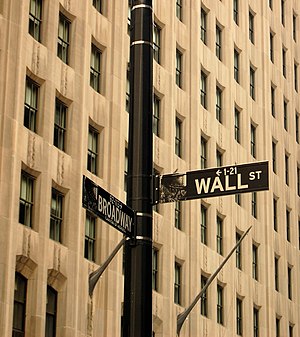Japan's Nikkei down 3.6 pct after heavy
US, European losses
*
MSCI World stocks index down 1 pct to low for 2011
* Gold remains soft as investors sell to cover losses
* Japan sells record Y4 trln in
FX intervention-Nikkei (Recasts, updates prices, adds quotes)
By Kevin Plumberg
SINGAPORE, Aug 5 (Reuters) - - World
stock markets fell for the eighth straight session on Friday to the lowest since late 2010, with more losses feared if policymakers do not come to the rescue soon to stabilise the euro zone's debt crisis and prevent the U.S. economy from sliding back into recession.
After panic overnight triggered the worst sell-off on
Wall Street since the
global financial crisis, investors in Asia slashed positions in equities and commodities and scrambled for the safety of cash and government bonds.
Some Asian stocks markets fell by more than 5 percent.
Major European stock markets were expected to open as much as 2.2 percent lower while U.S. stock futures eased 0.2 percent, with investors worldwide waiting for U.S. employment figures due later in the day that could trigger further selling if the jobs picture disappoints.
"Equity valuations are already pretty low but sentiment keeps deteriorating, so why come in and buy now?" said Shane Oliver, head of investment strategy at Sydney-based AMP Capital, which has more than $100 billion in assets under management.
Investors are looking for stronger U.S. and European policy responses, but it may be a while until they see another dose of quantitative easing from the
Federal Reserve or a stop-gap measure in
Europe, Oliver said, adding the firm had spent the past month neutralising its overweight positions.
Complicating matters was that Japan and Switzerland have intervened this week to knock down their currencies, which were considered the safest in the developed world. That has caused some safety-seeking investors to think twice about stashing money there when financial market volatility is spiking.
So far, retail investors were participating in the heavy selling but institutional equity investors in Asia were not completely liquidating their positions, instead continuing to cut riskier bets and protect their portfolios.
The benchmark MSCI all-country world stocks index fell 1 percent to the lowest since Dec. 1, 2010. The index has slumped nearly 11 percent since late July.
RISK REDUCTION
Japan's Nikkei share average fell 3.7 percent to the lowest since the week following the country's massive earthquake and tsunami in March.
An institutional fund manager overseeing 400 billion yen in Japanese equities, who could not be identified as he was not authorised to speak to media, said he was trying to reduce exposure to stocks which were dependent on external demand.
The asset manager was selling shares of carmakers, traders and electric machinery stocks, and buying retailers and textile manufacturers.
The benchmark MSCI index of Asia Pacific stocks outside Japan fell 4.6 percent , with investors selling across the sectors, whether they are defensive or cyclical. The index is on course for the biggest weekly drop since November 2008, when the global financial crisis was rippling through markets.
"Clearly, it's just a knee-jerk reaction to what's going on," said Michael Heffernan, senior client advisor with Austock Group in Australia. "We're going down simply on the fear that Italy can't pay its debts."
Within Asia, markets with high trade exposure to the West and reliance on commodities looked particularly vulnerable.
Taiwan, where the technology sector makes up about half of the equity market capitalisation and depends heavily on exports to developed countries, is a weak point in Asia.
The benchmark stock index in Taiwan led Asia, falling 5.1 percent .
EUROPE, LIQUIDITY AND WIDENING SPREADS
Europe, where overloaded national balance sheets have bedeviled politicians struggling to grasp the implications, is currently in the eye of the storm.
Italian and Spanish bond yields have kept rising and German bond yields are falling, widening spreads the most since the euro was born and causing deep-seated fears that realistic options for policymakers to keep the euro zone together are few.
The European Central Bank on Thursday resumed buying government bonds after a four-month break and announced new longer-term funding for liquidity-starved banks, but investors kept selling peripheral European bonds.
Traders who had went warily back to the yen and Swiss franc were tested.
The dollar whipsawed in Asian trading against the yen on talk of additional Japanese intervention, trading slightly lower on the day at 78.59 yen , a day after Japan reportedly spent a record 4 trillion yen ($50.6 billion) to weaken its currency and bolster its export competitiveness.
U.S. 10-year Treasury futures ticked up 9.5/32 to 128-9.5/32 , just below the Thursday high of 128-12/32, which was the highest since December 2008. The cash yield was at 2.39 percent , matching the lowest since October 2010.
The yield has sank nearly 40 basis points so far in August, as a wall of worry sends investors to the most liquid bond market in the world despite worries about Washington's ability to cut spending and rein in longer-term debt.
Commodity markets extended heavy overnight losses on fears of slowing demand.
U.S. crude for September delivery fell 1.1 percent to $85.54 a barrel, the lowest since February 2011.
Spot gold prices edged up $6.74 an ounce to $1,654.84 after hitting a record around $1,681 an ounce on Thursday before losing some of the gains.
In an ominous sign, gold prices in the past 24 hours were soft despite the spiralling fears hurting risky markets. Investors were having to sell gold positions to cover losses elsewhere in their portfolios.
"This will not be a quiet day. Liquidity will be at a premium," a sales trader with a European bank said. (Additional reporting by Vikram Subhedar in Hong Kong and Antoni Slodkowski in Tokyo; Editing by Kim Coghill)
 Image via Wikipedia
Image via Wikipedia



